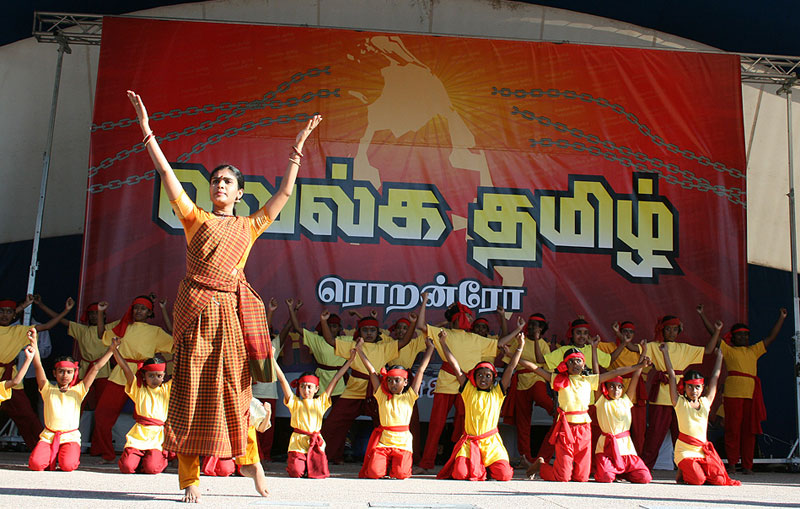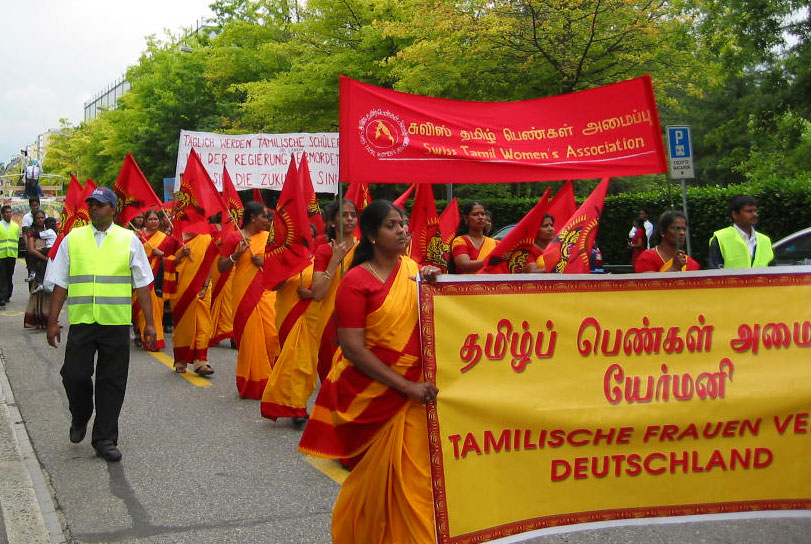Former government strongman forms new party
Two former ministers of the main ruling party in Sri Lanka launched a new political party last week, and the main opposition is exploring the possibility of an alliance.
Separately, the country’s Sinhala nationalist Marxists called for the new party to join an alliance with it.
The Sri Lanka Freedom Party- Mahajana Wing (SLFP(MW)) or 'Peoples' Wing' was formally launched last Friday, by ousted former ministers Mangala Samaraweera and Sripathi Sooriyaarachchi.
They announced the formation of the new party after crossing over to sit in opposition benches last Tuesday, deepening divisions in the ruling coalition. Samaraweera invited former President Chandrika Kumaratunga to come back from "political retirement" and "guide" the SLFP (MW) and the country.
After talks with the SLFP (MW), the main opposition United National Party (UNP) said the next three months would be a decisive period for the country because of a series of politically significant events.
UNP General Secretary and parliamentarian Tissa Attanayake told a news conference the UNP was inviting all democratic political parties to team up with it in the struggle against the government.
The party said some government Ministers had already agreed to join forces with the opposition to form a broad political alliance against dictatorship. “We will not give the names of these Ministers right now. But, there will be crucial political developments within the next few months,” Attanayake said.
He said the two parties decided to appoint a joint committee to study Samaraweera’s policy statement titled ‘Daring to dream towards a new Sri Lankan order.’
Meanwhile the Marxists Janatha Vimukthi Peramuna (JVP) was reportedly planning to invite Samaraweera to join forces with them for a broad alliance against the government.
The invitation was to be made at a meeting this week and the UNP was not being invited to join the alliance, the Daily Mirror reported.
In an interview with the Daily Mirror, JVP General Secretary Tilvin Silva said they had planned to form a broad front even by including disgruntled members from the government as well as the UNP.
Mr. Silva said they would never opt for an alliance with the UNP, which he cited as a party without solutions to the major problems confronting the nation today.
“We want to form a broad front. Even government members who are disappointed with the present system can join us. It is a front open to all progressive and patriotic forces. Mr. Samaraweera should also join it, but not the UNP,” he said.
The SLFP (MW) was launched with an offering of flowers at the memorial of SLFP founder Solomon Bandaranaike, the father of Kumaratunga, at the family's ancestral home in Horagalla.
Samaraweera was a close ally of Kumaratunga, but was sacked by President Mahinda Rajapakse, who is from the SLFP, along with Sooriyaarachchi and Anura Bandaranaike, Kumaratunga's brother earlier in the year.
Anura Bandaranaike rejoined the government.
Samaraweera made a 'private statement' in parliament last Wednesday, claiming that the ruling coalition has betrayed the "principles and political philosophy" of the SLFP.
"They have rejected the party's centrist policies and are taking our country in an extreme direction," Samaraweera told the speaker in a letter prior to his speech.
"We are totally opposed to this path of extremism and in order to protect the principles of the SLFP we shall represent the Mahajana Wing of the Sri Lanka Freedom Party."
Separately, the country’s Sinhala nationalist Marxists called for the new party to join an alliance with it.
The Sri Lanka Freedom Party- Mahajana Wing (SLFP(MW)) or 'Peoples' Wing' was formally launched last Friday, by ousted former ministers Mangala Samaraweera and Sripathi Sooriyaarachchi.
They announced the formation of the new party after crossing over to sit in opposition benches last Tuesday, deepening divisions in the ruling coalition. Samaraweera invited former President Chandrika Kumaratunga to come back from "political retirement" and "guide" the SLFP (MW) and the country.
After talks with the SLFP (MW), the main opposition United National Party (UNP) said the next three months would be a decisive period for the country because of a series of politically significant events.
UNP General Secretary and parliamentarian Tissa Attanayake told a news conference the UNP was inviting all democratic political parties to team up with it in the struggle against the government.
The party said some government Ministers had already agreed to join forces with the opposition to form a broad political alliance against dictatorship. “We will not give the names of these Ministers right now. But, there will be crucial political developments within the next few months,” Attanayake said.
He said the two parties decided to appoint a joint committee to study Samaraweera’s policy statement titled ‘Daring to dream towards a new Sri Lankan order.’
Meanwhile the Marxists Janatha Vimukthi Peramuna (JVP) was reportedly planning to invite Samaraweera to join forces with them for a broad alliance against the government.
The invitation was to be made at a meeting this week and the UNP was not being invited to join the alliance, the Daily Mirror reported.
In an interview with the Daily Mirror, JVP General Secretary Tilvin Silva said they had planned to form a broad front even by including disgruntled members from the government as well as the UNP.
Mr. Silva said they would never opt for an alliance with the UNP, which he cited as a party without solutions to the major problems confronting the nation today.
“We want to form a broad front. Even government members who are disappointed with the present system can join us. It is a front open to all progressive and patriotic forces. Mr. Samaraweera should also join it, but not the UNP,” he said.
The SLFP (MW) was launched with an offering of flowers at the memorial of SLFP founder Solomon Bandaranaike, the father of Kumaratunga, at the family's ancestral home in Horagalla.
Samaraweera was a close ally of Kumaratunga, but was sacked by President Mahinda Rajapakse, who is from the SLFP, along with Sooriyaarachchi and Anura Bandaranaike, Kumaratunga's brother earlier in the year.
Anura Bandaranaike rejoined the government.
Samaraweera made a 'private statement' in parliament last Wednesday, claiming that the ruling coalition has betrayed the "principles and political philosophy" of the SLFP.
"They have rejected the party's centrist policies and are taking our country in an extreme direction," Samaraweera told the speaker in a letter prior to his speech.
"We are totally opposed to this path of extremism and in order to protect the principles of the SLFP we shall represent the Mahajana Wing of the Sri Lanka Freedom Party."




